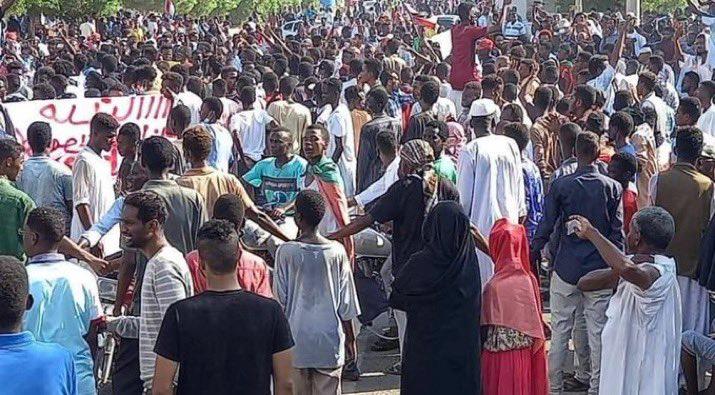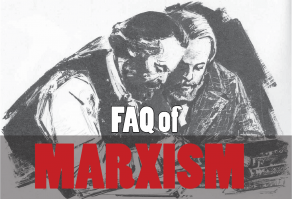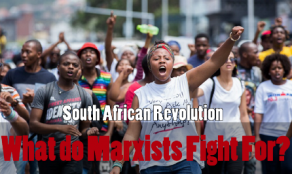The Sudanese Revolution has taken a new turn. 28 days after the coup that removed him from power, Abdalla Hamdock was reinstated as Prime Minister by the military junta. The streets, which have fought and shed blood for a month to win civilian rule, have met this news, not with jubilation – but rage.
In a televised address alongside representatives of the military, Hamdock said that a new deal had been struck that he hoped would “end the bloodshed” – which is ironic, given that the generals, whom he will now serve in his new position, continue to claim they have killed nobody since the coup.
Under the newly inked deal, Hamdock will lead a “technocratic” government, with the goal of establishing a constitutional conference and holding elections by June 2023, to complete “the transition to democracy and its related obligations”.
Anticipating how this announcement would be received, Hammock said: “I have made up my mind and signed this political agreement, although I know that many may disagree, object, or reject it simply because the people’s ambitions and aspirations were much higher.”
Shotgun marriage
The transitional government will be ‘supervised’ by a new Sovereign Council, with the two main leaders of the counter-revolution, General Burhan and General Hemeti, occupying the top spots and selecting its membership. The only real role of the new transitional government will be to rubberstamp the decisions of the generals.
This is a return to military dictatorship in all but name, with Hemeti taking to Twitter to “congratulate the people of Sudan on today’s historic event. An agreement has been signed ensuring that Sudan continues on the path of democracy and the people’s will.” The approval of this mass murderer is all that needs to be said of the new arrangement.
 Abdalla Hamdock has been reinstated as Prime Minister by the military junta. The streets, which have fought and shed blood for a month to win civilian rule, have met this news, not with jubilation – but rage / Image: fair use
Abdalla Hamdock has been reinstated as Prime Minister by the military junta. The streets, which have fought and shed blood for a month to win civilian rule, have met this news, not with jubilation – but rage / Image: fair use
Nobody believes the generals’ assurances that they will allow elections to a civilian government in the future. Indeed, repression was still going on even while this new “compromise” was being announced, claiming another victim in the form of 16-year-old Yousif Abdelhamid, who was shot in the head yesterday.
Other promises have been made, which the masses have no confidence will be honoured. For example, the party of the old Bashir dictatorship (National Congress Party) is expressly banned from taking part in the new transitional government. But Burhan has spent the last few weeks hiring Bashir loyalists to important positions in the state, which makes the pledge dubious.
It was announced that all political prisoners are to be released, although so far only a handful have been set free; and an “independent probe” into violence during the past month has been promised, though this is a laughable notion when the butchers themselves are in charge.
Finally, the anti-corruption committee set up by the last transitional government to investigate embezzlement, shut down by the coup plotters – who have spent decades looting the wealth and resources of Sudan – will be revived and “restructured”, which we can read as: “rendered impotent.”
It is clear to anyone with eyes that Hamdock’s reinstatement to the head of a so-called transitional government, under the supervision of the armed forces, is nothing but a cover for the rule of the counter-revolutionary junta.
Yesterday saw a fourth national demonstration, shortly after the bloodiest day of the coup so far last Thursday, in which 15 protestors were killed by the security forces. The total number of confirmed deaths is 41, and hundreds lie injured or dying in Sudan’s overcrowded hospitals, which have repeatedly come under attack from the counter-revolution.
Far from being cowed, the turnout yesterday was even bigger than last time: with at least 19 cities and towns taking part, and at least a million people on the streets (the exact figures are hard to come by). In part, this was because (for unclear reasons) the military finally lifted the nationwide communications blackout on Friday. Aside from making it easier to mobilise the demonstration, it meant people all over the country could finally see the full extent of the military’s brutality pouring out of social media.
The images and videos of the Rapid Support Forces (RSF – the tribal paramilitaries under Hemeti’s command) and police firing live ammunition at crowds of unarmed protestors, and bodies riddled with intentional kill shots to the head and torso, enraged the masses even further.
Revolution refuses to back down
The junta remains isolated, basing itself on the most reactionary elements of the security forces. It lacks any organic base of support in society.
While the junta has not spared the whip of repression, unleashing brutal violence against the revolution, every time the masses have come back with hardened resolve.
The aim of the junta throughout this period has been to wear the masses down through bloodshed. This has been aided by a lack of any clear plans or objectives from the leaders of the revolution, with the aim of bringing the struggle to its logical conclusions.
Despite relentless attacks, the masses have heroically persevered after a month of deadlock. The generals were not expecting the process to last this long. Therefore, they have been forced to change tactics. They hope that ‘restoring’ Hamdock as a civilian front for their rule will throw dust in the masses’ eyes, and cut across the revolution.
They have been assisted in this end by leaders of the so-called international community, particularly the imperialist representatives of the US and UN, who have been endeavouring behind the scenes to stitch up a new arrangement between the army, Hamdock and the remnants of the civilian wing of the old transitional government.
Secretary of State Antony Blinken said the US is “encouraged” by the new deal, while the UN released a statement welcoming Hamdock and Burhan’s “consensus on resolving the constitutional and political crisis that was threatening the stability of the country.”
Stability is the watchword here. The imperialists are keen to avoid the military being overthrown by the revolutionary struggle of the masses, which would likely inspire revolutionary movements in other countries in the region. They hope that the military and transitional government can now ‘work together’ in their new shotgun wedding, and restore stability by pacifying the streets.
But the masses see right through this. It is a positive development that the counter-revolutionary role of the so-called international community has been laid bare: they are not allies but enemies of the Sudanese people.
After the bitter struggle, death and hardship they have gone through for democratic rights and civilian rule, the masses are furious at being returned to a position that is a significant step back from where they started.
When the announcement of the new government came, the streets boiled with fury towards Hamdock in particular. As we previously reported, the liberal prime minister, a former UN economist, was not especially popular with the masses before the coup.
Aside from entering into a disgraceful power share with the same murderous generals who drowned the revolutionary sit-ins of 2019 in blood, Hamdock oversaw a brutal austerity programme at the behest of imperialist bodies like the IMF and World Bank, who provided aid to Sudan with the expectation of “structural adjustments” (i.e. cuts).
In fact, the coup was preceded by a cut to fuel subsidies, which provoked anti-government, pro-military sit-ins in Khartoum. These were relatively small, made up of more backward layers of society, egged along by the military, and met with far-larger pro-democracy demonstrations. Still, the fact remains that Hamdock’s reactionary policies meant he enjoyed limited support from the Sudanese people.
On top of that, he turned a blind eye to continuing abuses by the RSF and police against the people after 2019, particularly targeting prominent members of the resistance committees.
Illusions in Hamdock shattered
However, when Burhan launched his coup, removed Hamdock and dissolved the Sovereign Council, the masses rallied to defend the gains of the 2019 revolution. In the process, certain illusions developed among some layers of the Sudanese (and especially the ex-pat community) in Hamdock, as the country’s ‘legitimate’ civilian political leader.
Those illusions have been shattered by yesterday’s developments, with the streets uniformly rejecting the new deal and naming Hamdock a traitor to the revolution.
All the leading bodies of the revolution, including the Sudanese Professionals Association, the Neighbourhood Resistance Committees, and even the more conservative Forces for Freedom and Change, have rejected the new transitional government as a sham. The former has reiterated the three main slogans of the revolution: no dialogue, no compromise and no partnerships with the military.
During the protests yesterday, the resistance committees made their feelings known, with the crowds in Khartoum declaring:
“To whomever believed in Hamdok, Hamdok is dead; and to whomever believed in the streets, the streets are chanting and will never die.”
A protestor from Omdurman, interviewed in the Guardian on Sunday, said: “I am just so disappointed by this deal. What about those who have been killed?” Another protester added: “I will keep going to the streets because the military doesn’t give any guarantees that they will stick by their deals. They always cheat.”
The revolutionary masses have vowed to remain on the streets, and a fifth national demonstration has been called for Thursday. If the intention of this ‘concession’ was to cut across the revolution, it appears to have had the opposite effect.
The rejection of Hamdock is a step forward. It shows the masses are learning from the harsh school of revolution. One important lesson is that liberals cannot be trusted. Their class interests and loyalty to capitalism means they are incapable of fulfilling the aspirations of the Sudanese people for genuine democracy and a decent existence.
Liberals leaders will always seek compromise, no matter the depths of vicious depravity to which the junta sink, rather than support the masses in the revolutionary conquest of power. Ultimately, both Burhan and Hamdock support the continuation of capitalism, which is the source of the poverty and backwardness which haunts Sudanese society.
The masses fully understand the need to smash the junta, but the burning question as ever is - how? The SPA talks about arresting the generals and transitioning immediately to a fully civilian administration, but the generals have weapons, and are willing to use them in defence of their power and privileges, and the revolution does not!
As we have said many times, the major weakness of the Sudanese Revolution is the unwillingness of its leadership to meet the junta with arms in hand. Instead, it simply reinforces the masses’ anxieties with an insistence on peaceful methods, without explaining how these methods could ever convince the counter-revolution to vacate power.
The SPA warns that there will be a bloody civil war if the masses take up arms, but isn’t that precisely what there is now? A one-sided civil war, with the forces of counter-revolution slaughtering men women and children every day!
And wasn’t life under the rule of the junta in past years precisely a never-ending nightmare of poverty and misery? What this revolution has shown time and time again is that the masses are ready to make the ultimate sacrifices in order to change society. The ones who are afraid and vacillate are the liberal so-called leaders, who ceaselessly hold back the revolution from removing the junta, arresting the generals and placing a new civilian government in power - all of which require armed bodies of men loyal to the revolution!
The only way to avoid bloodshed and chaos is precisely by the most forceful armed intervention of the masses against the counter-revolution and its shock troops on the streets. The more the leaders hesitate, the more they vacillate without showing any way forward, the more it will embolden the counter-revolution and demoralise parts of the masses opening the way for more chaos and more bloodshed.
The leaders of the revolution should therefore explain the need for armed struggle, and organise disciplined self-defence via the resistance committees, combined with making a general appeal to the rank-and-file of the armed forces to mutiny and join their class brothers and sisters against Burhan and Hemeti.
No compromise, talks or partnerships: complete the revolution!
The experience of the Sudanese Revolution is a living demonstration of the need for a clear-sighted revolutionary party. Even a small such party, had it existed from the start, could have connected with the aspirations of the masses, and transformed the situation.
This party could have pointed the way forward with a clear programme of organising armed defence committees throughout the country connected on a local and national level, a general appeal to the rank and file soldiers to join the revolution, as well as an all-out general strike leading towards an insurrection to take power and arrest the leaders of the counter-revolution and disarm its forces.
This would be connected to the need to unify and build up the resistance committees into a national body of workers’ power, and convene a constituent assembly so the masses can elect their own representatives.
In the conditions that have emerged since the October coup, such a programme would resonate with millions of people and open a new stage in the revolution. In the absence of such a force, the revolution is forced to go through many bitter lessons.
This is the only way to guarantee the victory of the Sudanese Revolution, which continues to inspire the world with its incredible resilience.
The people have spoken: down with the coup! No deals or partnerships! The fight for democratic rights and dignified existence in Sudan goes on!
In the last analysis, the objectives of the revolution can only be assured and sustained through the building of socialism in Sudan, which will be a beacon to all exploited and oppressed people throughout Africa, the Arab world and beyond!



